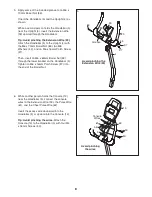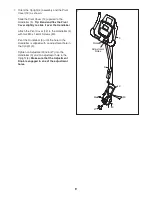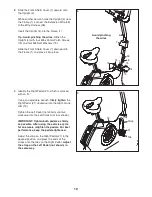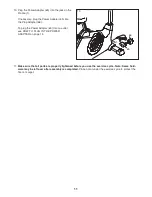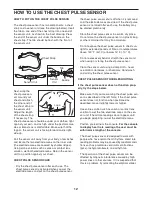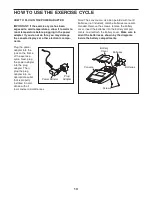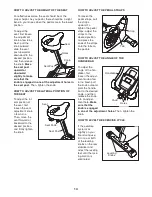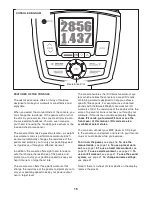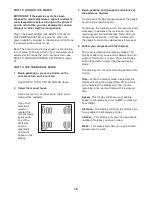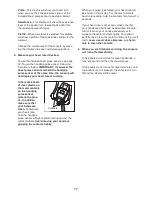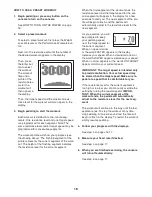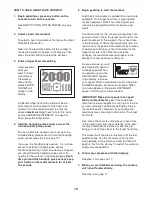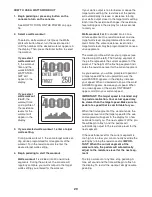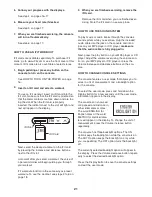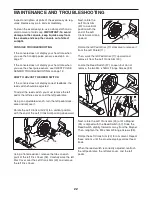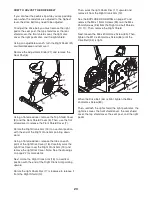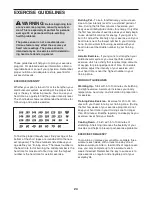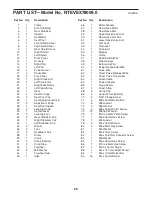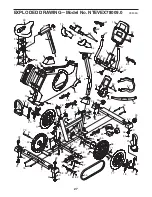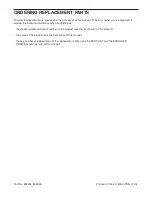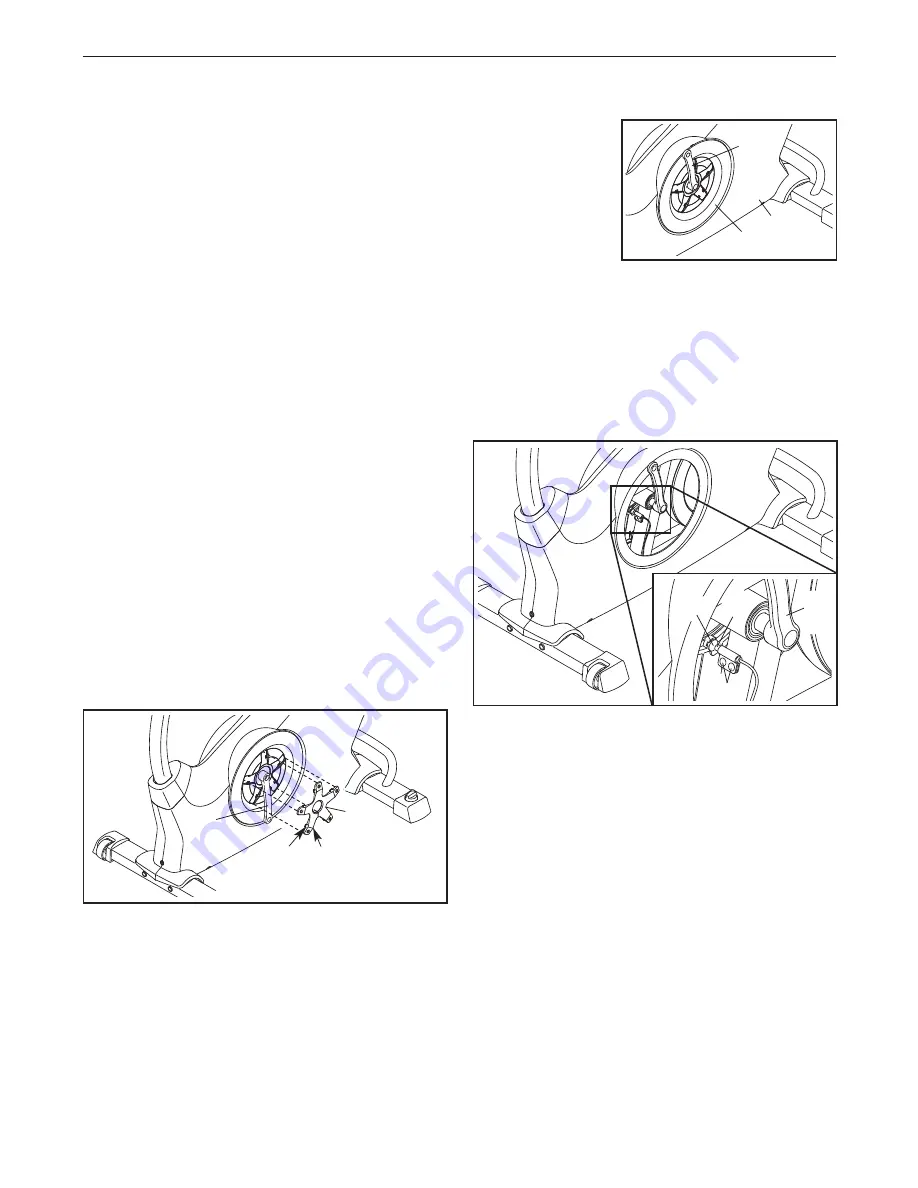
22
Inspect and tighten all parts of the exercise cycle reg-
ularly. Replace any worn parts immediately.
To clean the exercise cycle, use a damp cloth and a
small amount of mild soap.
IMPORTANT: To avoid
damage to the console, keep liquids away from
the console and keep the console out of direct
sunlight.
CONSOLE TROUBLESHOOTING
If the console does not display your heart rate when
you use the handgrip pulse sensor, see step 5 on
page 17.
If the console does not display your heart rate when
you use the chest pulse sensor, see CHEST PULSE
SENSOR TROUBLESHOOTING on page 12.
HOW TO ADJUST THE REED SWITCH
If the console does not display correct feedback, the
reed switch should be adjusted.
To adjust the reed switch, you must remove the left
pedal, the left disc cover, and the left pedal disc.
Using an adjustable wrench, turn the left pedal clock-
wise and remove it.
Rotate the Left Crank Arm (20) to a vertical position
with the end of the Left Crank Arm pointing downward.
Using a flat screwdriver, release the tabs on each
point of the left Disc Cover (18). Carefully work the left
Disc Cover over the Left Crank Arm (20) and remove
the left Disc Cover.
Next, rotate the
Left Crank Arm
(20) to a vertical
position with the
end of the Left
Crank Arm pointing
upward.
Rotate the left Pedal Disc (17) clockwise to release it
from the Left Shield (11).
Then, work the left Pedal Disc (17) upward and
remove it from the Left Crank Arm (20).
Locate the Reed Switch (57). Loosen, but do not
remove, the two M4 x 16mm Flange Screws (99).
Next, rotate the Left Crank Arm (20) until a Magnet
(55) is aligned with the Reed Switch (57). Slide the
Reed Switch slightly toward or away from the Magnet.
Then, retighten the M4 x 16mm Flange Screws (99).
Rotate the Left Crank Arm (20) for a moment. Repeat
these actions until the console displays correct feed-
back.
When the reed switch is correctly adjusted, reattach
the left pedal disc, the left disc cover, and the left
pedal.
MAINTENANCE AND TROUBLESHOOTING
20
18
Tab
Tab
20
17
11
57
99
55
20

